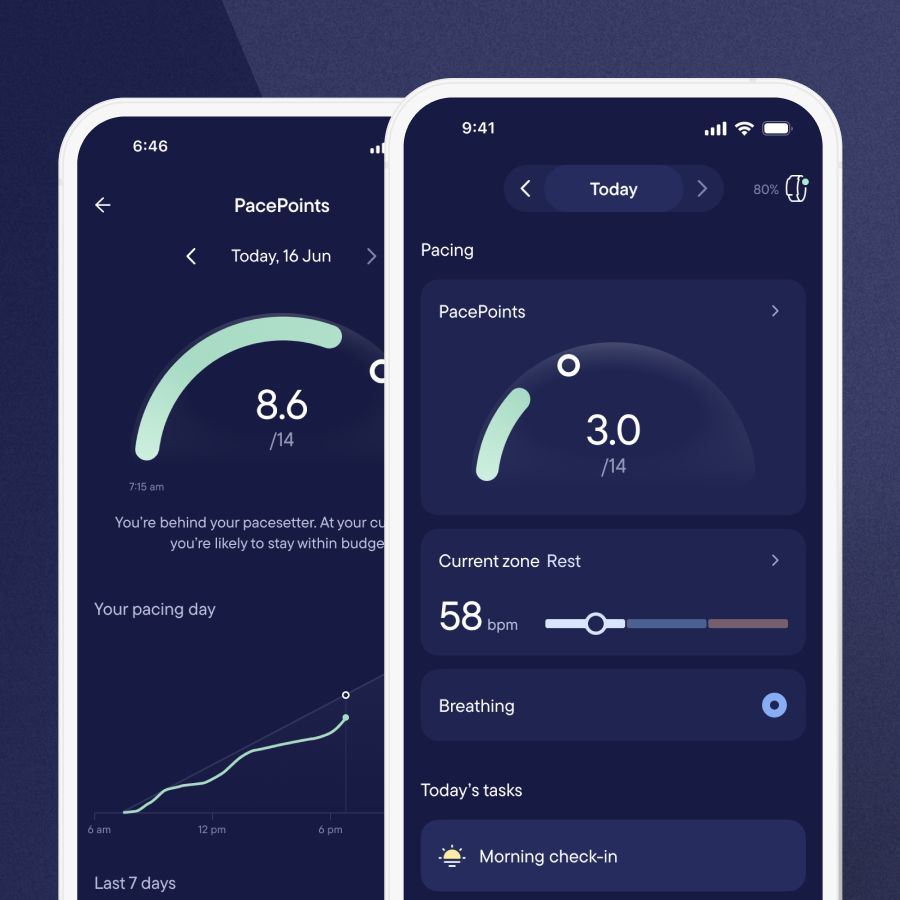After a long delay, the UK Government has finally published its Delivery Plan for ME/CFS. As many had anticipated, it fails to meet the scale of the challenge.
The ongoing failure to address ME/CFS in the UK
Myalgic encephalomyelitis/chronic fatigue syndrome (ME/CFS) is a complex, multi-system condition that affects around 1.35 million people in the UK, including many with post-Covid onset. It ranks among the lowest of all chronic illnesses in quality-of-life scores.
Care for those most severely affected remains critically inadequate, described in a 2024 Prevention of Future Deaths report as “non-existent.” Emerging treatments for symptom management are largely confined to the private sector and accessible only to those who can afford them.
Public investment for research into the condition has long been dangerously inadequate. Between 2015 and 2020, UK public research funding for ME/CFS totalled just £6 million, compared to £53 million for Parkinson’s and £22 million for multiple sclerosis, despite each conditions affecting only half as many people as ME/CFS prior to the post-Covid increase in cases.
A closer look at the plan
Last week, the Department of Health and Social Care published its long-awaited cross-government Delivery plan for ME/CFS. Originally commissioned in 2022 by then Health Secretary Sajid Javid, the plan aimed to improve attitudes, accelerate research, and improve outcomes for people with ME/CFS. A public consultation process helped shape its development.
Small wins
The plan makes some important acknowledgements, including:
- Serious patient safety concerns, including recent preventable deaths, stating that such outcomes should be “never events”
- The current inadequacies in NHS care, particularly for those with Very Severe ME/CFS
- The urgent need for more research
- The necessity to improve healthcare professional education and training on ME/CFS
After decades of marginalisation, public recognition of these systemic challenges is progress, and a credit to sustained advocacy from patient communities, charities, clinicians, and researchers.
Big gaps
But beyond these acknowledgements, the plan offers little substance:
- No new funding to match the scale of unmet need in care or research
- No clear strategy for improving NHS services, aside from an optional e-learning module for NHS staff
- Very few specific targets or timelines, making it difficult to assess progress or hold the plan accountable
While the plan mentions a specialist service for Very Severe ME/CFS, concrete steps are deferred to future funding decisions. Other patient priorities including support for off-label treatments in current clinical care and the integration of tech-enabled support (which we were, of course, hoping to see) are notably absent.
The bottom line
It’s clear the plan does not meet the scale or urgency of the problem. The issues facing the ME/CFS community are entrenched and systemic. Addressing them will require bold, coordinated action supported by adequate investment - none of which is reflected in the plan.
How Visible is driving research into ME/CFS
The plan’s limited ambition is particularly evident in its approach to research. The headline NIHR initiative on repurposed medications offers just £200,000 grants, a tiny sum in the context of research funding. The invitation to apply to existing pots of funding is unconvincing given how little that has achieved historically. Two named projects (HERITAGE and PRIME), valued at a combined £2.2 million, are welcome but were independently developed and not initiated by the plan itself.
At Visible, we’re not waiting. We’ve already committed nearly 10 times more than the government’s £200k NIHR grant, building the tools, technology, and infrastructure needed to support rigorous, scalable research into ME/CFS and other complex chronic illnesses.
More than 25,000 individuals have contributed data through Visible, working in collaboration with leading partners including Imperial College London, Mount Sinai, and the Patient-Led Research Collaborative. Over 400 million health data points have been voluntary shared, creating an unprecedented real-world, longitudinal data on ME/CFS and related conditions.
We’re also supporting clinical trials, including an upcoming antiviral study with the University of Derby. Next week, we’ll be announcing a new initiative to fast-track recruitment into clinical trials.
Together, we’re building the evidence base needed to drive better understanding, more effective treatments, and ultimately, improved outcomes for people with ME/CFS.
Tech-enabled solutions
Another missed opportunity in the Delivery Plan is the lack of support for tech-enabled solutions. Their potential has been underscored in two recent reports - Lord Darzi’s The Future State of Health and Healthcare in 2035 and the NHS 10 Year Health Plan. Both highlight the role of wearables and remote monitoring in facilitating real-time health tracking, early intervention, and personalised support for those with chronic conditions.
At Visible, we’re already seeing how wearable technology can be transformative in empowering people living with complex chronic illnesses such as ME/CFS, to better understand, monitor, and manage their symptoms. We had hoped to see that more clearly reflected in this plan.
The bigger picture: invisible illness still isn’t visible enough
ME/CFS is not an isolated issue. It’s part of a broader crisis of invisible, poorly understood complex chronic illnesses. These conditions face deep, systemic neglect: they are underfunded, poorly understood in clinical settings, and largely excluded from national research strategies. Despite affecting millions, they remain on the periphery of both science and care.
The government’s plan for ME/CFS may mark a shift in rhetoric, but rhetoric without resources won’t be enough to improve people’s lives. At Visible, we’re building the tools and the evidence base that patients need now. If the government is serious about improving outcomes, it must move beyond recognition and invest in the systems that can actually deliver change, alongside those already leading the way.


